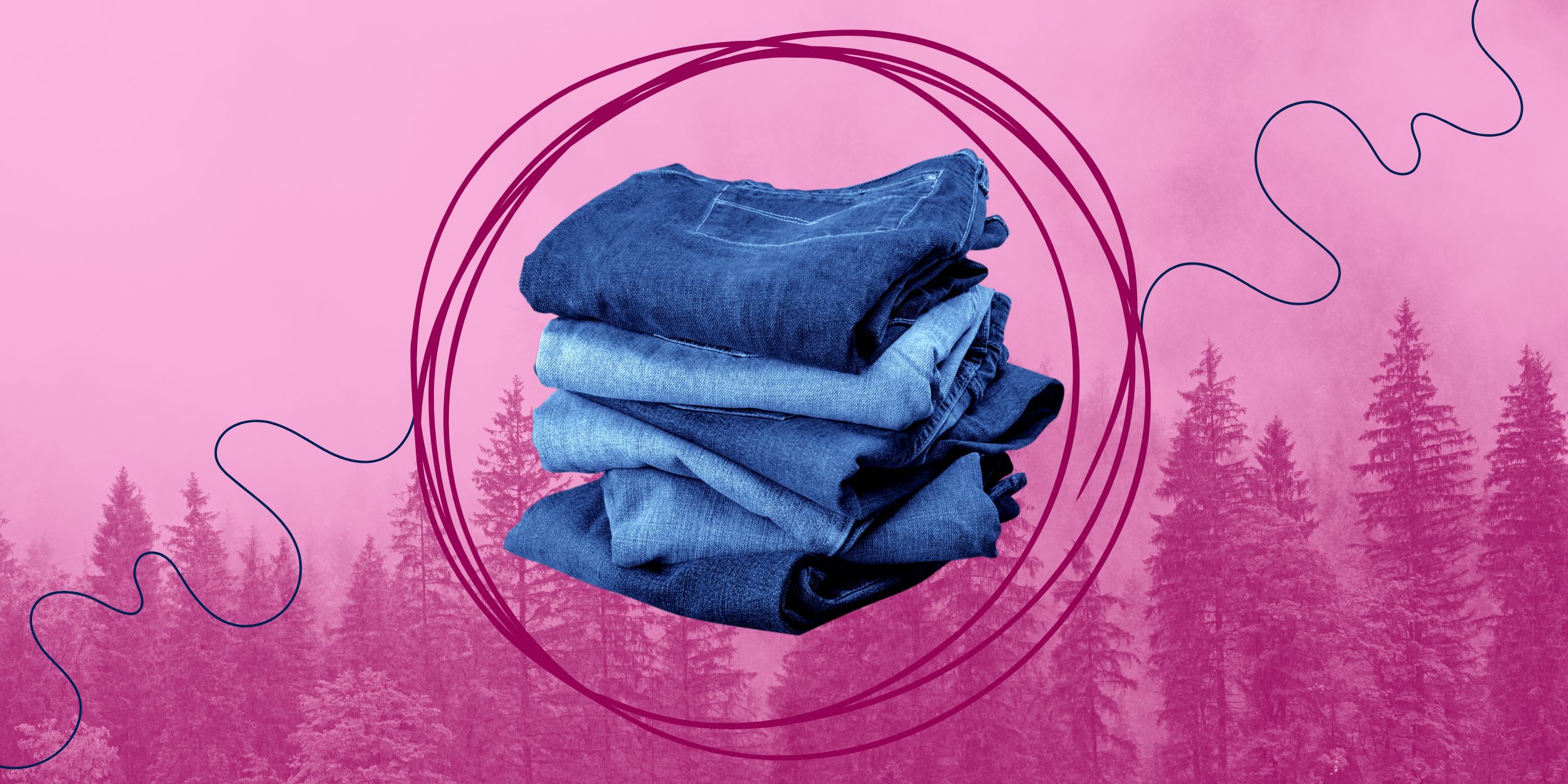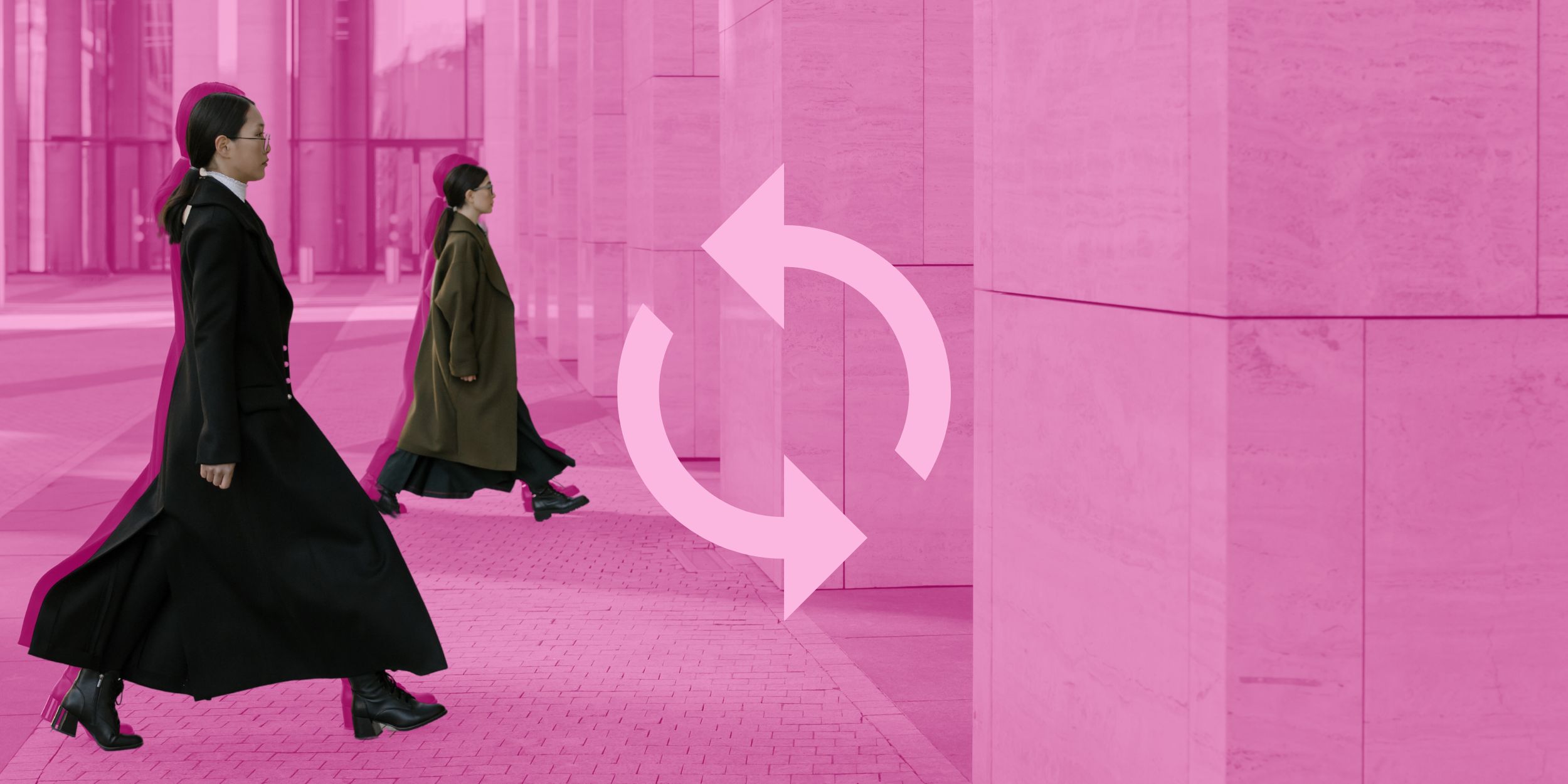
Tell us about your journey to founding Cirquel. What inspired you to create a platform focusing on the circular economy?
Cirquel was born out of a personal journey that combines my passion for fashion, sustainability, and innovation. My experience in e-commerce began early, as I was running an online e-commerce business while studying BA, MA and later on pursuing my PhD. Those formative years shaped my entrepreneurial mindset and deepened my understanding of the challenges brands face. As an eco-conscious consumer and serial founder (also of a sustainable yoga accessories brand), I also struggled firsthand with deadstock, samples, and prototypes, unsure how to handle them responsibly. These personal and professional experiences, combined with the advancements in AI technology, inspired me to create (together with my co-founder June Arrieta) Cirquel — a holistic, end-to-end solution to redefine circularity and transform challenges into opportunities.
Cirquel places a strong emphasis on sustainability and the circular economy. How do you see your platform influencing the transition to more sustainable practices in industries like fashion and consumer goods?
Cirquel is designed to revolutionise the fashion and consumer goods industries by embedding sustainability into every stage of the returns and repurposing process. By leveraging localised operations, AI-powered quality checks, and strategic partnerships, we help brands not only minimise waste and carbon footprints but also monetise unwanted items like returns, deadstock, and prototypes. Our holistic approach transforms these challenges into opportunities, enabling a seamless transition to a circular economy while aligning with growing regulatory and consumer demands for sustainable practices.



Your work involves promoting reuse, recycling, and circular systems. What are the biggest challenges you’ve encountered in implementing these systems, and how has Cirquel addressed them?
One of the biggest challenges in promoting reuse, recycling, and circular systems is overcoming the fragmented logistics and operational inefficiencies that make it difficult for brands to adopt these practices at scale. Many businesses lack the infrastructure to process returns locally, leading to increased carbon emissions and wasted resources. Cirquel addresses these challenges by providing an end-to-end solution – localised orchestration. By simplifying and streamlining the process, we make circularity more accessible, efficient, and profitable for brands, aligning sustainability with business success, but also more accessible to local end-consumers especially Gen-Z who are the leading group investing in pre-loved or returned goods.
Many companies are still hesitant to adopt circular business models. How does Cirquel help businesses overcome this hesitation and integrate circular principles into their operations?
Cirquel eliminates the complexity often associated with circular business models by offering an easy-to-implement solution. Our AI-powered technology streamlines the process, from forecasting the best use of returned or unwanted items to repurposing them through resale, rental, or eco-friendly recycling. By partnering with local stakeholders and leveraging geo-localised resale platforms, we ensure maximising value recovery of the garment and sustainability factors like reducing CO2 emissions -as the processes are taking place locally instead of travelling long distances, making the transition seamless and compelling for brands.
Technology seems to play a significant role in Cirquel’s approach. Can you tell us more about the digital tools and solutions your platform offers to facilitate circularity?
Technology is at the heart of Cirquel’s approach to driving circularity. Our AI-powered inspection tools and computer vision technology enable rapid and precise quality checks, identifying imperfections in returned items or samples. Paired with our predictive software, we optimise the repurposing and rerouting processes—whether for resale, rental, or recycling. Our app streamlines the consumer return process, while our geo-localised resale platform ensures items are processed and monetised quickly and sustainably.
Collaboration is a key component of the circular economy. How does Cirquel foster partnerships between brands, suppliers, and consumers to create a more sustainable ecosystem?
At Cirquel, collaboration is at the core of our mission to build a sustainable and circular ecosystem. We partner up with diverse stakeholders who share our vision for sustainability and circularity. Ultimately, I believe that behind every impactful initiative are people and we are on this mission together! By fostering strong, like-minded relationships, at Cirquel we create a foundation for long-lasting cooperation and collective progress toward a more sustainable fashion industry.
What role do you believe education plays in the success of circular initiatives? Does Cirquel offer resources or guidance to help businesses and consumers better understand circular practices?
Education is fundamental to the success of any circular initiative, including Cirquel. We recognise that changing consumer behaviour is extremely challenging, which is why we focus on educating both businesses and individuals in a positive and engaging way. Instead of emphasizing what’s being done wrong, we highlight the benefits of circularity—such as how returning items through Cirquel saves significant CO2 emissions. To further this mission, we provide educational resources through our website blog, our localised resale Instagram account and our LinkedIn channel, where we share insights and updates. By combining actionable education with tangible data, we empower businesses and consumers to actively participate in sustainable practices.

The fashion industry is often highlighted as a major area for improvement in sustainability. What specific opportunities does Cirquel see in this sector, and how do you support brands looking to transition to circular models?
The fashion industry, with its immense scale and rapid turnover, is responsible for around 10% of global carbon emissions and nearly 20% of wastewater, making it one of the largest contributors to environmental degradation. However, it also presents an unparalleled opportunity for circularity. At Cirquel, we see the untapped potential in returns, overstock, and deadstock—an estimated $196 billion global market—as a goldmine for creating value instead of waste.
Through our solution, we transform what might otherwise be a financial and environmental burden into new revenue streams. We reduce the traditional 3-13 weeks turnaround time for processing returns to just up to 28 days (including repurposing), and help brands recover up to 70% of an item’s original price through resale or rental, compared to the cost of disposal. By partnering with local warehouses and leveraging geo-localized resale, we drastically cut carbon emissions tied to reverse logistics.
Additionally, our advanced AI and data-driven insights not only streamline the assessment, repair, and repurposing processes but also help brands align with increasing consumer demand for sustainability and regulatory pressures like the EU ban on garment destruction and digital product passports (DPP). Cirquel is redefining returns and circularity, offering brands a faster, more efficient, and profitable way to adapt to the future of fashion while supporting global environmental goals.
You’re building a platform at the intersection of innovation and sustainability. What trends or innovations in the circular economy are you most excited about right now?
I’m particularly excited about the rapid advancements in technology that are driving the circular economy forward. AI-powered tools, like our own solutions at Cirquel, are revolutionising how we assess and repurpose returned garments, making processes faster, more accurate, and scalable. The rise of hyper-localisation in circularity is another game-changing trend—creating closed-loop systems where items are processed, repurposed, and sold locally, reducing the environmental impact of logistics and meeting the growing consumer demand for sustainable practices.
Emerging innovations like digital product passports are paving the way for greater transparency and traceability, empowering brands to track garments across their lifecycle and align with new regulations. For example, California’s SB707 Textile Recovery Act now mandates producer-funded programs for the reuse, repair, and recycling of textiles, putting the onus on brands to manage the post-purchase phase of their products responsibly. Technology, such as Cirquel’s end-to-end solutions, can play a vital role in helping brands navigate these legislative requirements while transforming their approach to returns into an opportunity to embrace sustainability and generate new revenue streams. The increasing integration of these trends with regulatory shifts positions us to drive meaningful change in the fashion industry.
Looking to the future, where do you see Cirquel in the next five years? What are your goals for the platform, and what impact do you hope to achieve?
In the next five years, I see Cirquel becoming a cornerstone of circular fashion logistics across Europe and beyond. Our goal is to establish a network of localised partnerships with warehouses, rental & resale platforms, and recycling facilities in key markets and fashion hubs as well as grow our multiple local resale channels, ensuring brands have seamless access to a holistic solution for managing their returns, deadstock, and overstock.
We aim to process millions of garments annually, helping brands not only comply with stringent sustainability but also turn losses into revenue through resale, rental, and eco-friendly recycling. By providing brands with hyper-localized, data-driven solutions, we hope to redefine industry standards for efficiency and sustainability, significantly reducing the fashion industry’s carbon footprint.
Our long-term vision is to create a self-sustaining ecosystem where circularity is not just an option but the default practice, ultimately influencing consumer habits and making the fashion industry more transparent, responsible, and aligned with the values of the next generation of shoppers.
What advice would you give to entrepreneurs or businesses just beginning their journey toward sustainability and circularity?
My advice to other entrepreneurs would be to embrace their vision with confidence but remain prepared to adapt quickly and pivot if necessary. Prioritize understanding your clients’ needs and addressing their pain points—constructive feedback is an invaluable tool for growth. Even the most innovative solution requires strong market demand to succeed; without it, the best ideas may fall short. Lastly, always remember that behind every business are people, and fostering meaningful, goal-oriented collaboration is essential for achieving lasting impact.
What’s been your proudest moment so far in Cirquel’s journey?
My proudest moment in Cirquel’s journey so far has been the successful and remarkably swift launch of our proof of concept in Madrid. Within just a few weeks, we built a fully operational pilot, seamlessly integrating with local warehouses and securing collaborations with forward-thinking brands eager to monetise their returns and deadstock in a sustainable way. The rapid recognition of our solution’s value and the enthusiasm of brands to join our mission have been incredibly rewarding. This milestone not only validates our vision but also highlights Cirquel’s capability to deliver real, measurable impact in the circular fashion space. Witnessing our growth (thanks to Beam – Berlin based Venture Studio backed by BEUMER Group) and our innovation driving meaningful change in an industry ready for transformation has been truly inspiring.

Co-Founder: Anna Warchalowska
LinkedIn: anna-warchalowska-contact
Email: anna@beamberlin.com
Co-Founder: June Arrieta
LinkedIn: june-arrieta
Company LinkedIn: cirquel/
Website: cirquel.io